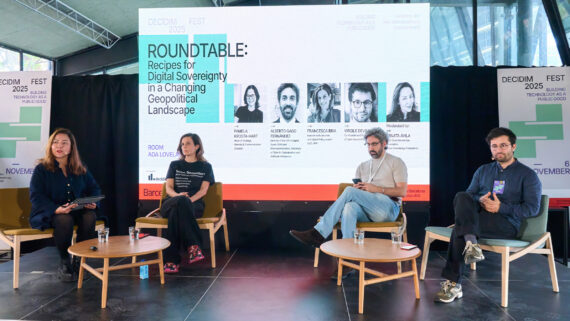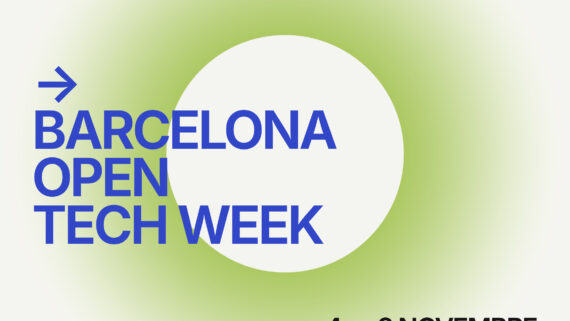The use of technology in times of conflict is no longer science fiction, but a reality that impacts people's lives. In a roundtable discussion, experts from Lafede.cat, Prou Complicitat, Novact, Tecnosandías, and Gaza residents have demonstrated how large technology corporations support a system of control and repression that benefits military strategies, with direct consequences for the Palestinian population.
A bit of historical context
Israeli military surveillance over the Palestinian people has very deep roots. Since the founding of the State of Israel in 1948, approximately 750,000 Palestinians have been expelled and the population has lived under a regime of constant control. This situation has enabled Israel to develop security and armament technologies that, in the early 21st century, positioned it as a global leader in cybersecurity. The career paths of veterans from Unit 8200 have been key in creating some of the most innovative startups in this field, with 80% of the founders having experience in military artificial intelligence units.
Mass surveillance, algorithms, and “battle-tested” products
During the session, the speakers shared striking examples of how technologies are being turned into weapons. As explained by Judith Membrives, AI and Digital Rights technician at Lafede.cat, these are unsettling practices, such as video game–type apps that collect data on Palestinians, algorithms that decide where to bomb using the minimum possible arsenal, and systems that predict when someone will be at home to target them. “This isn’t science fiction; it’s everyday life in Gaza,” Membrives stated.
Furthermore, the concept of “battle-tested” means putting technology to the test by using it against people. “80% of the personnel at major Israeli tech companies have served in military artificial intelligence units,” highlighted Alys Samson, a member of the Coalition Prou Complicitat Israel and Novact.
The voice of resistance
The relationship between military technology and economic exploitation forms a notable symbiosis in the region. Israel uses its army to develop technology that it later sells with the “battle-tested” seal. “That’s why we say these technologies should not be bought,” Samson stated. Meanwhile, the situation in Gaza is further complicated by internet blackouts caused by bombings and blockades, tactics that leave the population completely disconnected.
The architect and human rights consultant Gador Luque recounted how, during the first blackout in Gaza, people resorted to every means possible to reconnect. “Mobile phones turned into access points for sending messages or climbing to high places near the sea to try to catch a signal from Egypt were some of the tools used. It was extremely difficult,” she explained. Each photograph arriving from Gaza is often made possible thanks to an eSIM, a virtual SIM that connects people to the network and enables the transmission of vital testimonies.
In this regard, the collective Connecting Humanity provides Internet access to those living in the region. “Since I was little, I was aware that I couldn’t speak calmly next to my mobile because a bomb might fall on me,” expressed Gaza residents Nada Alhasham, a translator and data extraction specialist at Jawal Telecommunications, and an engineer at another telecommunications company in Palestine. eSIMs can save lives and give Gaza residents a voice to show the genocide in Gaza. Since 2023, more than 450,000 eSIMs have been distributed.
The BDS Movement and the global response
The BDS movement, which began in 2005 with the aim of ending the occupation, apartheid, and demanding the return of Palestinian refugees, continues to have a significant impact. Samson added that “years later, more and more states, companies, and universities are severing ties with Israel.” Companies like Dropbox, Electronic Arts, and others have withdrawn or suffered losses due to the boycott; at the University of Barcelona, students halted collaboration with Tel Aviv University, and Palestinian unions are promoting actions in Canada, Spain, the United Kingdom, etc.
These actions, together with technopolitical movements seeking alternatives and the creation of decentralized networks, represent a vital response to a system designed to monitor and control.







